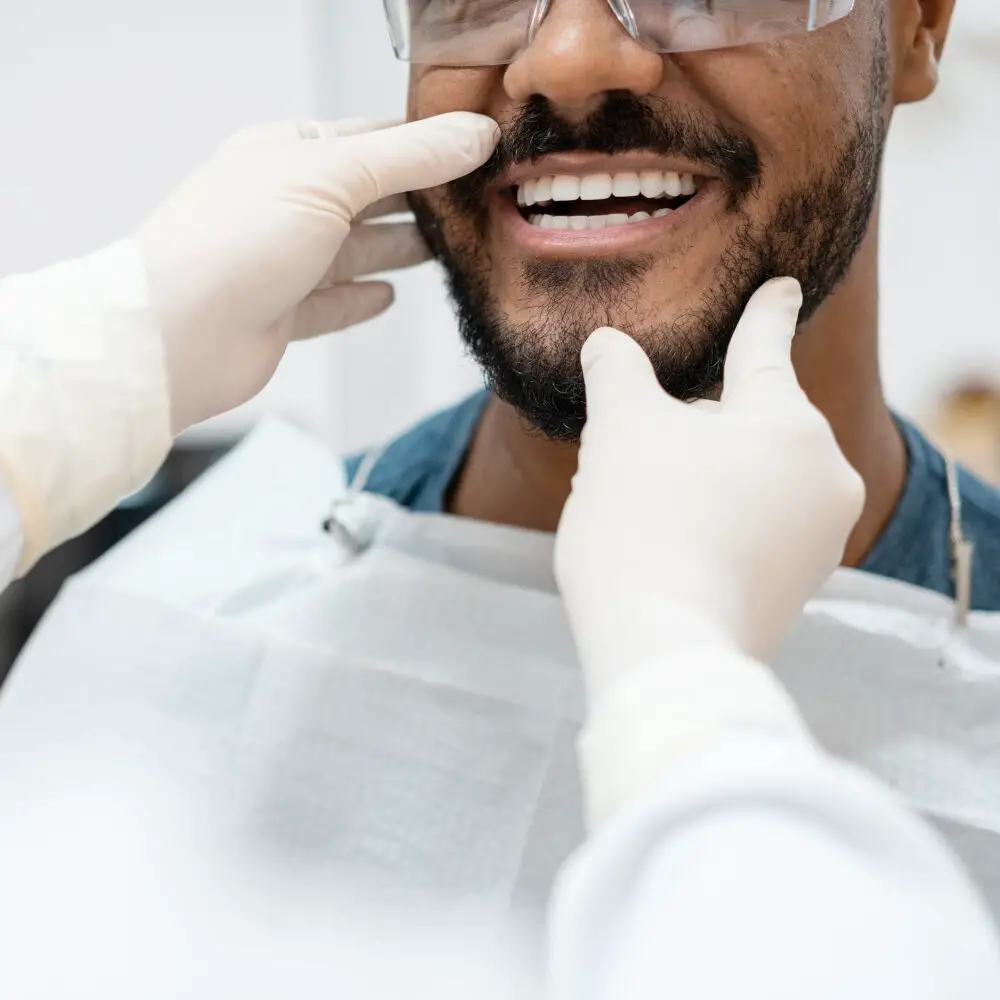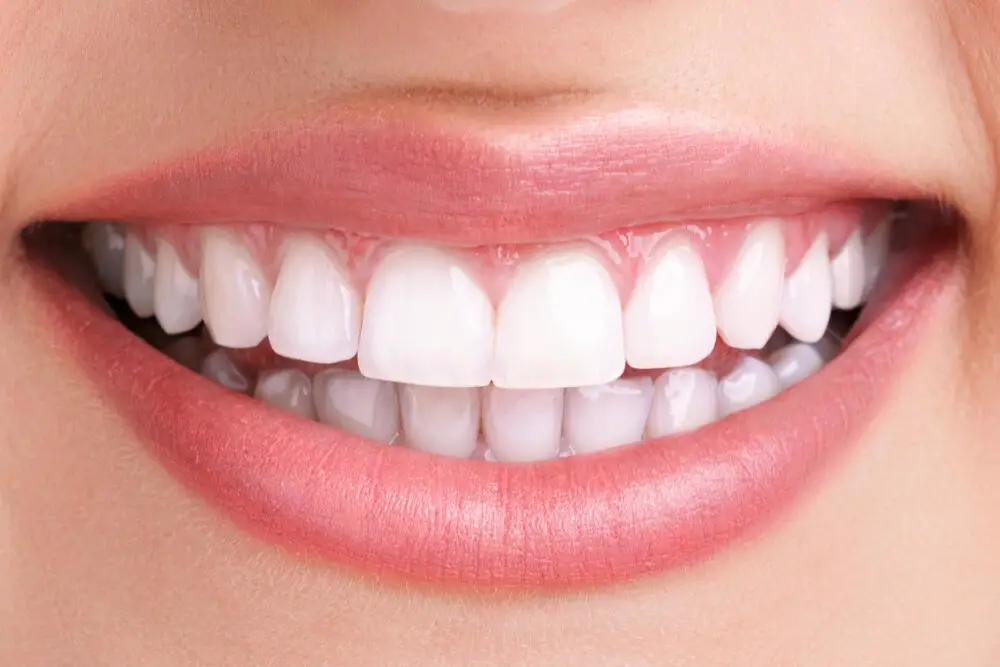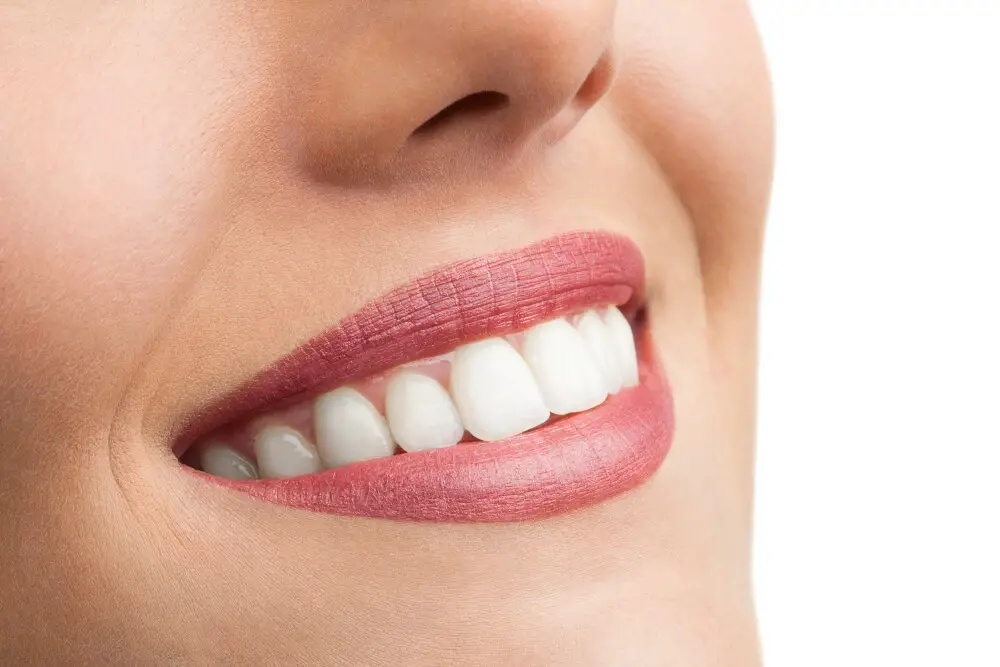Wisdom Teeth Sore Throat Relief: Effective Treatment Options

Wisdom teeth are the third molars that generally start to emerge in the back of the mouth during early adulthood. While some people may not have any issues with their wisdom teeth, others may experience pain and discomfort due to the eruption process. One of the most common symptoms associated with the eruption of wisdom teeth is a sore throat. The soreness can be caused by inflammation, infection, or irritation in the throat area. Fortunately, there are several effective treatment options available to alleviate wisdom teeth sore throat and make the overall experience less painful and uncomfortable. If you are experiencing wisdom teeth sore throat, it is essential to seek medical attention from a dentist or oral surgeon. They can diagnose the underlying cause of your symptoms and recommend the best course of treatment. Some of the treatment options include over-the-counter pain relievers, warm salt water rinses, and prescription medications. In some cases, if the wisdom teeth are causing significant issues, removal may be necessary. The good news is that with the right treatment, you can alleviate the soreness and discomfort associated with wisdom teeth eruption and get back to your daily routine without any hindrance.
Wisdom teeth are the third and final set of molars that typically emerge in a person’s late teens or early twenties. These teeth are located at the back of the mouth and usually grow in pairs, one on each side. Wisdom teeth can be useful for chewing and grinding food, but they can also cause problems if they don’t have enough room to come in properly. This can often lead to pain, discomfort, and even infection. In some cases, wisdom teeth may need to be removed to prevent further complications.
Wisdom teeth, also known as third molars, are the last set of teeth to emerge in the back of the mouth, usually between the ages of 17 and 25. In some cases, they may not have enough space to emerge properly, causing them to become impacted, or partially emerged, which can lead to a variety of problems. One of these problems is that the partially emerged wisdom teeth can create a space where bacteria can gather and cause infection. This infection can spread to the surrounding area, including the throat, causing a sore throat. Additionally, the pressure from the impacted tooth can also cause discomfort and inflammation in the throat. Therefore, if you are experiencing a sore throat alongside other symptoms of impacted wisdom teeth, it is important to seek treatment from a dental professional to prevent further complications.
Home Remedies

Home remedies are a great way to alleviate the discomfort and pain associated with wisdom teeth sore throat. These remedies can be easily found in your kitchen or local grocery store and are a cost-effective alternative to over-the-counter medication. One popular home remedy is using saltwater gargles. Simply mix a teaspoon of salt in warm water and gargle for 30 seconds, then spit it out. This helps to reduce inflammation and soothe the soreness in your throat. Another effective home remedy is drinking warm tea with honey. Honey has natural antibacterial properties, which can help to fight off infections that may be causing your sore throat. Additionally, the warm tea helps to soothe your throat and loosen any mucus that may be causing discomfort. You can also add lemon to your tea, which contains vitamin C and antioxidants that can help to boost your immune system and further alleviate your sore throat symptoms. These home remedies are a great way to alleviate wisdom teeth sore throat discomfort without relying on medication or expensive treatments.
Saltwater gargle is a simple and effective home remedy for wisdom teeth sore throat relief. It involves dissolving salt in warm water and then gargling the solution in the mouth for a few seconds before spitting it out. The saltwater helps reduce inflammation and pain in the throat by drawing out excess fluids and bacteria. It also helps to clean the area around the wisdom teeth, which can become a breeding ground for bacteria and infections. Additionally, saltwater gargle is a natural antiseptic that can help prevent further infection and promote faster healing. It is a safe and easy method that can be done multiple times a day to alleviate discomfort and promote overall oral health.
Herbal teas can provide soothing relief for a sore throat caused by wisdom teeth. Known for their natural healing properties, certain herbs such as chamomile, ginger, and licorice root can reduce inflammation and ease discomfort. Chamomile tea is a popular choice due to its anti-inflammatory and calming effects, while ginger tea has natural anti-bacterial properties that can help fight off infections. Licorice root tea, on the other hand, can help numb the pain and reduce inflammation. These herbal teas can be enjoyed warm or cold, and can be sweetened with honey for added comfort. Incorporating herbal teas into your daily routine can not only provide relief for a sore throat, but also offer numerous health benefits.
Cold compresses are a simple yet effective way to alleviate the discomfort caused by a sore throat resulting from wisdom teeth extraction. They work by constricting blood vessels, reducing inflammation and numbing the area. To apply a cold compress, wrap a few ice cubes in a soft towel or use a frozen gel pack and hold it against the outside of your cheek where the wisdom teeth were extracted. Do not apply directly to the skin, as it can cause damage. Leave it on for 15-20 minutes at a time, several times a day, until the pain and swelling subside. In addition to providing relief, cold compresses can also help speed up the healing process.
Over-the-counter pain relievers are a popular and effective option for easing the discomfort and pain associated with wisdom teeth and sore throat. These medications, which include nonsteroidal anti-inflammatory drugs (NSAIDs) like ibuprofen and acetaminophen, work by reducing inflammation and blocking pain signals in the body. While they can provide quick relief, it is important to follow the recommended dosages and avoid taking them for extended periods of time to avoid potential side effects. Additionally, it is always wise to consult with a healthcare professional before using any medication, especially if you have any pre-existing health conditions or are taking any other medications.
Prescription Medications

Prescription medications are often used as a last resort in the treatment of wisdom teeth sore throat. These medications are usually recommended when over-the-counter medications have failed to provide relief or when the pain is severe. Prescription painkillers such as codeine, hydrocodone, and oxycodone are commonly prescribed for this purpose. However, it is important to note that these medications can be habit-forming and may have side effects such as drowsiness, nausea, and constipation. Therefore, they should only be used under the guidance of a healthcare professional. In addition to painkillers, antibiotics may also be prescribed to treat wisdom teeth sore throat. Antibiotics are used to treat bacterial infections that may be causing the sore throat. Commonly prescribed antibiotics include amoxicillin, penicillin, and erythromycin. However, it is important to note that antibiotics are not effective in treating viral infections, which are the most common cause of sore throats. Therefore, antibiotics should only be prescribed if a bacterial infection is suspected. It is also important to complete the full course of antibiotics as prescribed by the healthcare professional, even if the symptoms have improved.
Antibiotics are a class of drugs used to treat bacterial infections. They work by either killing the bacteria or stopping their growth, allowing the body’s immune system to fight off the infection. Although antibiotics are highly effective in treating bacterial infections, they are not effective against viral infections, such as the common cold. Additionally, overuse of antibiotics can lead to the development of antibiotic-resistant bacteria, which can be more difficult to treat. Therefore, it is important to only use antibiotics when they are prescribed by a healthcare professional and to always complete the full course of treatment.
Prescription pain relievers are a common option for those seeking relief from wisdom teeth sore throat. These medications can be highly effective in reducing pain and discomfort, and they are typically available in both oral and topical forms. Common prescription pain relievers include opioids such as morphine and oxycodone, as well as non-opioid medications like naproxen and ibuprofen. While prescription pain relievers can be highly effective, it is important to use them only under the guidance of a healthcare provider, as they can be associated with a range of potential side effects and risks. Additionally, it is important to carefully follow all dosing instructions in order to avoid accidental overdose or other complications.
Prescription anti-inflammatory drugs are a powerful tool in the fight against sore throat pain caused by wisdom teeth. These medications work by reducing inflammation, which in turn helps to reduce pain and swelling. There are several different types of prescription anti-inflammatory drugs available, including corticosteroids, non-steroidal anti-inflammatory drugs (NSAIDs), and COX-2 inhibitors. Each of these medications has its own unique set of benefits and risks, so it is important to work closely with your doctor to determine which medication is best for you. While prescription anti-inflammatory drugs can be highly effective for reducing pain and inflammation associated with wisdom teeth, it is important to remember that they can also have side effects, such as stomach upset, headaches, and dizziness. Therefore, it is crucial to follow your doctor’s instructions carefully and to report any side effects that you experience.
Medical Procedures

Medical procedures can be an effective option for wisdom teeth sore throat relief when other treatments have not worked. One such procedure is a tonsillectomy, which involves the removal of the tonsils. This procedure is typically only recommended in severe cases of tonsillitis or when other treatments have failed to provide relief. The procedure is performed under general anesthesia, and the recovery time can vary depending on the individual. Patients may experience some pain and discomfort after the procedure, but this can usually be managed with pain medication and other treatments. Another medical procedure that can provide relief for wisdom teeth sore throat is a uvulopalatopharyngoplasty (UPPP). This procedure involves the removal of excess tissue from the throat and can be effective in reducing snoring and sleep apnea, which can contribute to sore throat symptoms. Like a tonsillectomy, a UPPP is typically only recommended in severe cases or when other treatments have not been effective. Recovery time can vary, and patients may experience some pain and discomfort after the procedure. However, many patients report a reduction in snoring and sleep apnea symptoms, as well as relief from sore throat symptoms.
Extraction of wisdom teeth is a common dental surgery that involves the removal of one or more of the four wisdom teeth located at the back of the mouth. The procedure is generally performed under local anesthesia, and in some cases, general anesthesia may be required. Wisdom teeth are often extracted because they can cause various problems, such as overcrowding, impaction, infection, and pain. The surgery typically involves making an incision in the gum tissue, removing any bone that may be blocking access to the tooth, and then carefully extracting the tooth. After the procedure, patients may experience some discomfort and swelling, but this can be managed with pain relievers and ice packs. It is important to follow your dentist’s post-operative instructions carefully to ensure proper healing and minimize the risk of complications.
Tonsillectomy is a surgical procedure in which the tonsils, which are located at the back of the throat, are removed. This procedure is typically performed when a patient experiences chronic or recurrent tonsillitis, or if the tonsils are causing other health problems such as sleep apnea or difficulty breathing. The surgery is usually performed under general anesthesia and involves either cutting or burning the tonsils away. While it is a common procedure, there are risks associated with tonsillectomy, including bleeding and infection. Recovery time can vary from person to person, but patients can expect to experience some discomfort and difficulty swallowing for several days following the procedure. It is important for patients to follow their doctor’s instructions carefully during the recovery process to ensure proper healing.
Laser therapy is an innovative and non-invasive treatment option that can effectively provide relief for sore throats caused by wisdom teeth. This procedure uses a highly focused beam of light to target and eliminate inflamed tissue in the affected area. Unlike traditional surgical methods, laser therapy requires no cutting or sutures, resulting in a faster and less painful recovery time. Additionally, the precision of the laser allows for maximum efficacy with minimal damage to surrounding tissue. As such, laser therapy has become a popular option for those seeking a safe and effective means of treating sore throats caused by wisdom teeth.
Prevention

Prevention is the key when it comes to wisdom teeth sore throat relief. One of the most effective ways to prevent wisdom teeth-related sore throat is to maintain proper oral hygiene. This means brushing and flossing regularly, as well as using mouthwash to kill bacteria that can lead to infections. It’s also important to visit your dentist regularly to ensure that your teeth and gums are healthy. This can help catch any potential issues before they become more serious and lead to complications like sore throat. Another way to prevent wisdom teeth sore throat is to avoid smoking and drinking alcohol. Both of these habits can irritate the throat and make it more susceptible to infections. Additionally, it’s important to eat a healthy diet that’s rich in vitamins and minerals to support overall oral health. This can include foods like leafy greens, fruits, and lean proteins. By taking these preventative measures, you can reduce your risk of developing a sore throat related to wisdom teeth and maintain good oral health overall.
Regular dental checkups are an essential part of maintaining good oral health. These checkups allow your dentist to identify any issues early on, before they become more serious and require more invasive treatment. During a checkup, your dentist will examine your teeth and gums, looking for signs of decay, gum disease, and other issues. They may also take X-rays to check for any problems that aren’t visible to the naked eye. By attending regular dental checkups, you can help to prevent many common dental problems, such as cavities, gum disease, and tooth loss. Additionally, your dentist can provide you with advice on how to maintain good oral health at home, such as brushing and flossing techniques, as well as recommending any necessary treatments, such as fillings or root canals.
Maintaining good oral hygiene practices is essential to prevent dental problems and sore throat caused by wisdom teeth. Brushing your teeth twice a day with fluoride toothpaste, flossing daily, and using mouthwash can help remove plaque and bacteria from your mouth. Additionally, it is important to visit your dentist regularly for check-ups and cleanings. In case of wisdom teeth sore throat, saltwater gargles and over-the-counter pain relievers can provide temporary relief. However, it is always best to consult with your dentist or oral surgeon for proper evaluation and treatment options. By following these simple steps, you can keep your mouth healthy and avoid complications associated with wisdom teeth.
Early detection and treatment of wisdom teeth problems is crucial in preventing more severe complications. Regular dental check-ups and X-rays can help detect any issues with the wisdom teeth before they become painful or cause infection. Symptoms of wisdom teeth problems include pain, swelling, redness, and difficulty opening the mouth. Treatment options depend on the severity of the issue, but may include antibiotics, pain relief, or removal of the wisdom teeth. It is essential to seek professional dental advice if you experience any discomfort or pain in your wisdom teeth area to prevent further complications and ensure optimal oral health.
Effective treatment options for wisdom teeth sore throat relief include both at-home remedies and medical interventions. At-home remedies include saltwater gargles, ice packs, and over-the-counter pain relievers. Medical interventions may include antibiotics, prescription pain medication, or even surgical removal of the wisdom teeth themselves. It is important to consult with a healthcare professional to determine the best course of treatment based on the severity of the sore throat and the individual patient’s overall health. With proper treatment and care, individuals can find relief from the discomfort associated with wisdom teeth sore throats and prevent further complications.
When dealing with a sore throat caused by wisdom teeth, seeking professional advice is of utmost importance. There are various treatment options available, but only a dental professional can accurately diagnose the underlying problem and provide the most effective solution. Delaying treatment can lead to further complications, such as infection or even damage to surrounding teeth. It’s essential to prioritize your oral health and seek guidance from a qualified dentist or oral surgeon, who can recommend the best course of action to relieve your discomfort and prevent future issues. Remember, taking proactive measures and seeking professional advice can ultimately save you from more significant problems down the road.
In conclusion, dealing with a sore throat caused by wisdom teeth can be a challenging experience, but there are several effective treatment options available to ease the discomfort. From over-the-counter pain relievers to home remedies, there is a range of methods to alleviate the pain and inflammation associated with sore throats caused by wisdom teeth. If the discomfort persists or becomes severe, it is recommended to consult a dentist or medical professional for further evaluation and treatment. Additionally, taking preventative measures such as maintaining good oral hygiene and visiting the dentist regularly can help avoid future complications with wisdom teeth. Overall, staying informed and proactive can help alleviate the discomfort and ensure a smooth recovery.
Conclusion

In conclusion, wisdom teeth sore throat can be an incredibly uncomfortable and painful experience for anyone. However, there are effective treatment options available that can help alleviate the pain and discomfort associated with this condition. From simple home remedies like saltwater gargles and ice packs to over-the-counter pain medications and prescription antibiotics, there are a variety of options to choose from depending on the severity of your symptoms. It’s important to consult with your dentist or healthcare provider to determine the best course of action for your individual needs. With the right treatment and care, you can overcome wisdom teeth sore throat and get back to feeling like yourself again. So don’t suffer in silence – seek relief today!






